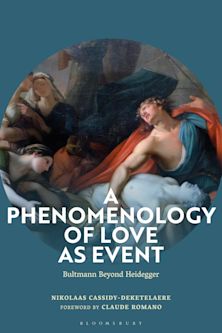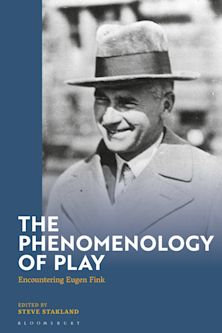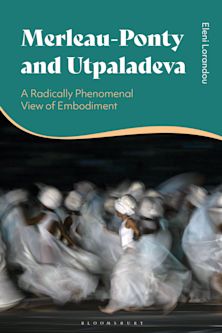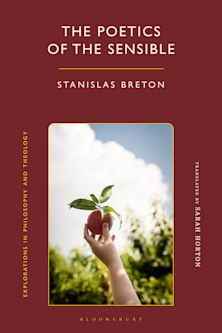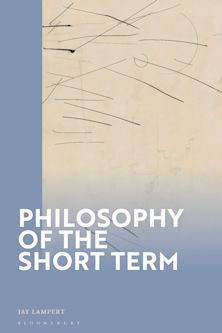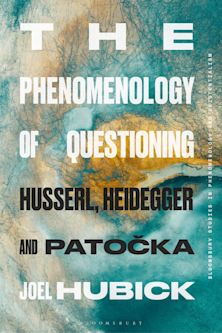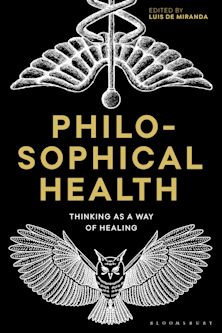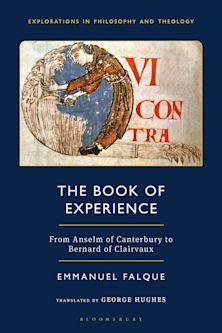- Home
- ACADEMIC
- Philosophy
- Phenomenology
- Phenomenology and the Arts
Phenomenology and the Arts
A. Licia Carlson (Anthology Editor) , Peter Costello (Anthology Editor) , John Russon (Contributor) , Galen A. Johnson (Contributor) , John Lysaker (Contributor) , Brian Rogers (Contributor) , Christian Lotz (Contributor) , Scott Marratto (Contributor) , Kirsten Jacobson (Contributor) , Susan Bredlau (Contributor) , Laura McMahon (Contributor) , Jeff Morrisey (Contributor) , Matthew Goodwin (Contributor) , David Ciavatta (Contributor) , Peter Costello (Contributor) , A. Licia Carlson (Contributor)
Phenomenology and the Arts
A. Licia Carlson (Anthology Editor) , Peter Costello (Anthology Editor) , John Russon (Contributor) , Galen A. Johnson (Contributor) , John Lysaker (Contributor) , Brian Rogers (Contributor) , Christian Lotz (Contributor) , Scott Marratto (Contributor) , Kirsten Jacobson (Contributor) , Susan Bredlau (Contributor) , Laura McMahon (Contributor) , Jeff Morrisey (Contributor) , Matthew Goodwin (Contributor) , David Ciavatta (Contributor) , Peter Costello (Contributor) , A. Licia Carlson (Contributor)
For information on how we process your data, read our Privacy Policy
Thank you. We will email you when this book is available to order
You must sign in to add this item to your wishlist. Please sign in or create an account
Description
Phenomenology and the Arts develops the interplay between phenomenology as a historical movement and a descriptive method within Continental philosophy and the arts. Divided into five themes, the book explores first how the phenomenological method itself is a kind of artistic endeavor that mirrors what it approaches when it turns to describe paintings, dramas, literature, and music. From there, the book turns to an analysis and commentary on specific works of art within the visual arts, literature, music, and sculpture. Contributors analyze important historical figures in phenomenology—Kant, Hegel, Husserl, Heidegger, and Merleau-Ponty. But there is also a good deal of work on art itself—Warhol, Klee, jazz, and contemporary and renaissance artists and artworks.
Edited by Peter R. Costello and Licia Carlson, this book will be of interest to students in philosophy, the arts, and the humanities in general, and scholars of phenomenology will notice incredibly rich, groundbreaking research that helps to resituate canonical figures in phenomenology with respect to what their works can be used to describe.
Table of Contents
Overview Licia Carlson
Phenomenological Method
Chapter 1 Phenomenological Description and Artistic Expression
John Russon
Chapter 2 On the Possibility of the 'Purity' and Primacy of Art: A Phenomenological Analysis Based in Merleau-Ponty, Husserl, and Kant
Galen A. Johnson
Chapter 3 In the Interest of Art
John Lysaker
Chapter 4 Between Fabrication and Form: Heidegger's Phenomenology of the Work
of Art
Brian Rogers
Visual Arts
Chapter 5 Husserl, Expressionism, and the Eidetic Impulse in Brücke's Woodcut
Christian Lotz
Chapter 6 Blind Narcissism: Derrida, Klee, and Merleau-Ponty on the Line
Scott Marratto
Chapter 7 Perceptual Openness and Institutional Closure in the Contemporary
Artworks of Luis Jacob and Phillip Buntin
Kirsten Jacobson
Literature
Chapter 8 An Organism of Words: Merleau-Ponty on Embodiment, Language and
Literature
Susan Bredlau
Chapter 9 Questioning the Material of Meaning: Merleau-Ponty, Adorno,
Product details
| Published | Sep 30 2016 |
|---|---|
| Format | Ebook (Epub & Mobi) |
| Edition | 1st |
| Extent | 360 |
| ISBN | 9781498506519 |
| Imprint | Lexington Books |
| Illustrations | 11 b/w illustrations; |
| Publisher | Bloomsbury Publishing |
About the contributors
Reviews
-
The appropriate audience for this volume is wide. It will be both enjoyable and enlightening for professional and student philosophers, artists, writers, and poets. The progression from each piece to the next is both thoughtful and natural, thanks to the editorial work of Carlson and Costello. In sum, this book explores the relationships between artist and work, work and witness, and artist and witness in a way that is meaningful and interesting to anyone interested in either art (broadly construed) or philosophy. . . . I thoroughly recommend this book to all who are interested in phenomenology or art, as much can be learned from this volume on both accounts.
Continental Philosophy Review
















